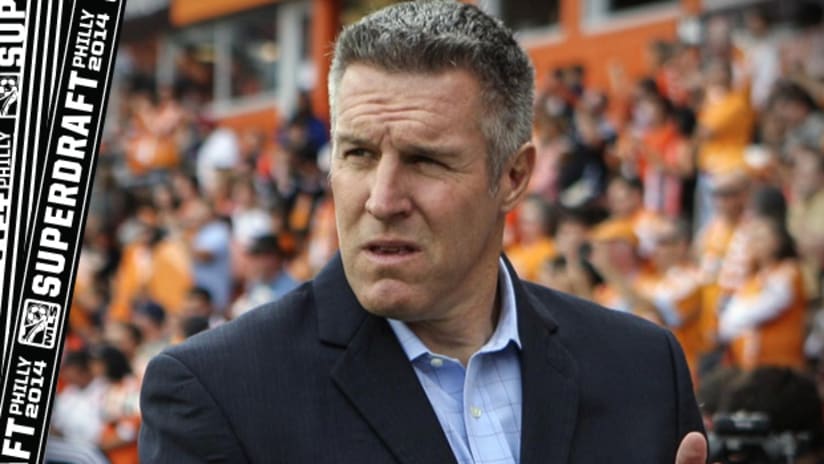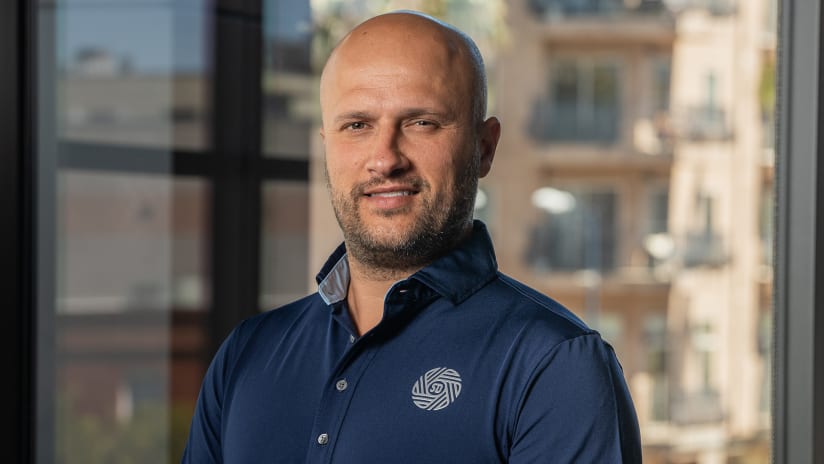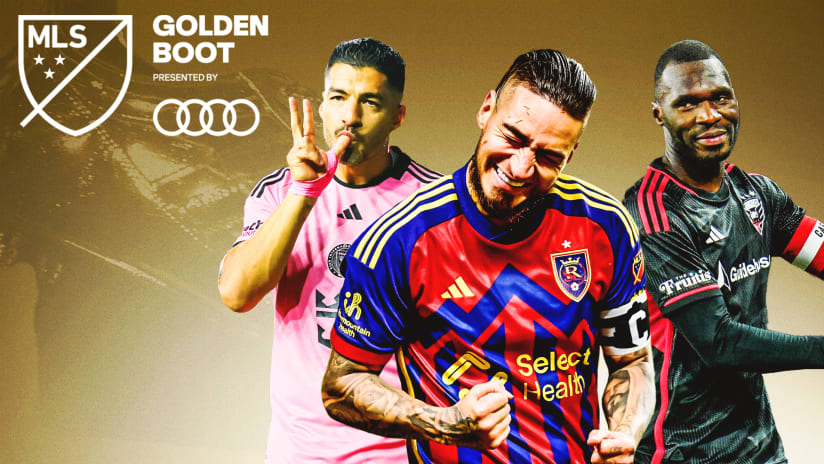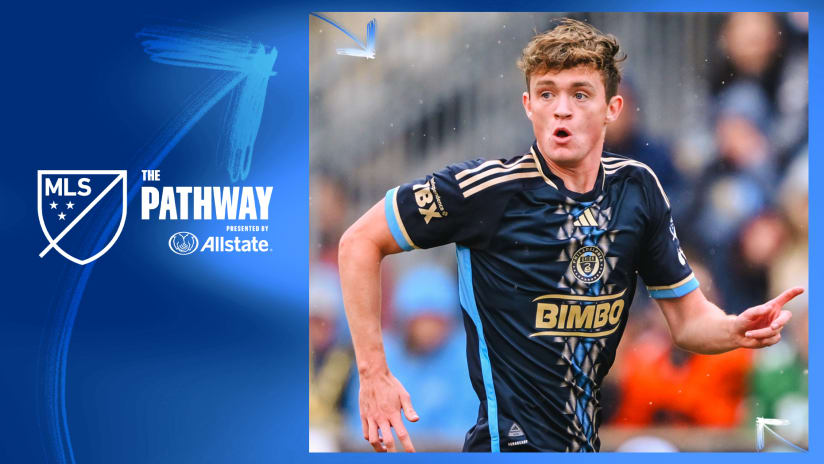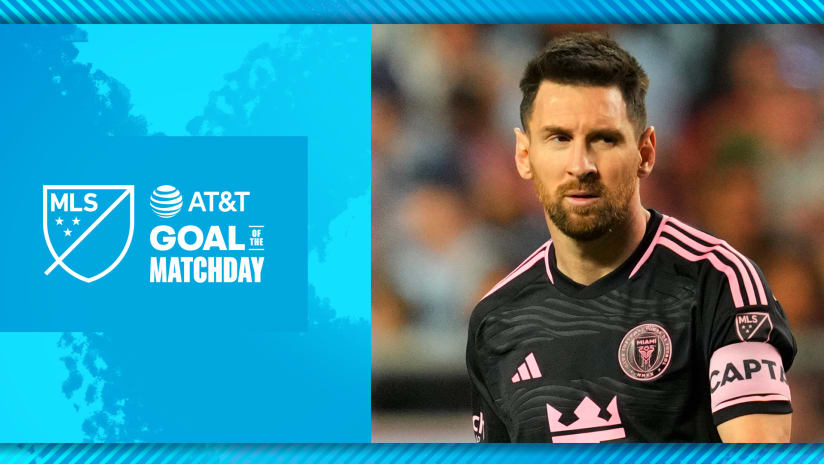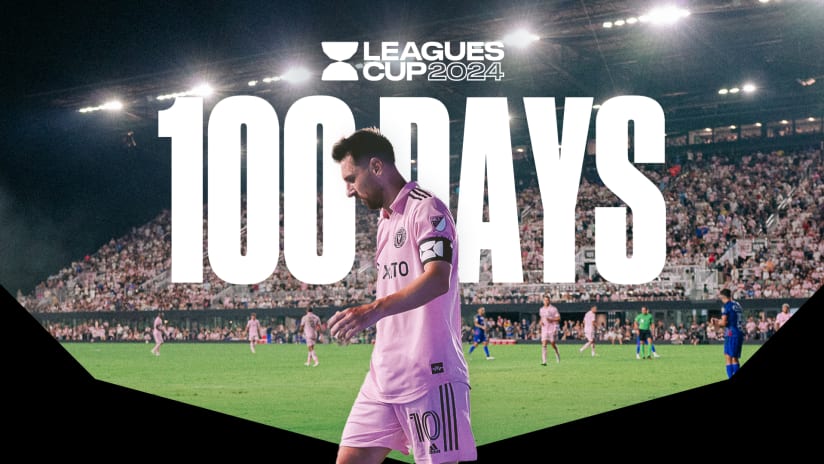If the MLS SuperDraft is an inexact science, why do some head coaches and general managers have better track records than others?
Do they see something others don’t? Does their scouting network have the foresight to separate the wheat from the chaff before they ever step on a professional pitch? Does draft order dictate talent? Or is it, in fact, simply blind luck?
Most likely, it’s some combination of all four that determines success after draft day is gone and all that’s left is for players to actually make an impact in an MLS game. With that in mind, MLSsoccer.com crunched the numbers for all 19 clubs' current regimes to see which head honchos have elevated the inexact science to an art form.
For the purposes of this story, we’ve limited the sample size, counting only SuperDraft and Supplemental picks from 2005 forward. We’ve also taken into account instances in which a player was drafted by one team but made his impact elsewhere in MLS. In the tables below and the attached spreadsheet, minutes played indicate only those logged for the club that selected them.
Essentially, we wanted a rough measure of how much fans can expect Thursday’s selections to affect their team – how many 2014 minutes they might get out of a cold day in January.
- MOCK DRAFT: Final run through before Thursday's SuperDraft
Of course, that doesn’t mean those coaches and GMs who traded their selections away or didn’t have a place for them immediately weren’t onto something – we’ll certainly give them credit where credit is due – but it does say something that those talents were ultimately employed, and perhaps thrived, elsewhere.
Similarly, the men running recent expansion franchises or who were recently hired are at a distinct disadvantage as well. There simply hasn’t been enough time for some of their picks to accumulate minutes, and the numbers reflect that as well.
Like the draft, it’s undoubtedly an inexact science, but it’s better than nothing as we play prognosticators ahead of the 2014 edition.
New England Revolution general manager Mike Burns has been involved with the most picks since 2005 (59). Timbers head coach Caleb Porter the fewest (3). But nobody – by our measure, at least – has been as productive stocking his team with college talent than Sporting KC manager Peter Vermes.
| SuperDraft production since 2005 | |||||||
| Players Drafted | Minutes | Minutes/player | |||||
| Peter Vermes (SKC) | 46 | 68,490 | 1,488.9 | ||||
| Mike Burns (NE) | 59 | 67,603 | 1145.8 | ||||
| Bruce Arena (NY, LA) | 27 | 49,871 | 1,847.1 | ||||
| Fernando Clavijo (COL, DAL) | 38 | 47,927 | 1,261.2 | ||||
| Dave Kasper (DC) | 40 | 47,269 | 1,181.7 | ||||
| Dominic Kinnear (HOU) | 41 | 43,499 | 1,061 | ||||
| Frank Klopas (CHI) | 38 | 42,884 | 1,128.5 | ||||
| Sigi Schmid (CLB, SEA) | 53 | 38,712 | 730.4 | ||||
| Frank Yallop (LA, SJ) | 47 | 32,430 | 690 | ||||
| John Doyle (SJ) | 27 | 26,864 | 995 | ||||
| Ben Olsen (DC) | 10 | 22,424 | 2,242.4 | ||||
| Garth Lagerwey (RSL) | 29 | 21,612 | 745.2 | ||||
| Brian Bliss (CLB) | 35 | 21,442 | 612.6 | ||||
| Jay Heaps (NE) | 22 | 19,296 | 877.1 | ||||
| Chris Henderson (SEA) | 28 | 12,519 | 447.1 | ||||
| Gavin Wilkinson (POR) | 15 | 9,844 | 656.3 | ||||
| Paul Bravo (COL) | 24 | 8,631 | 359.6 | ||||
| Greg Andersen (VAN) | 20 | 7,999 | 400 | ||||
| Oscar Pareja (COL) | 10 | 6,849 | 684.9 | ||||
| Nick de Santis (MTL) | 14 | 2,277 | 162.6 | ||||
| John Hackworth (PHI) | 7 | 311 | 44.4 | ||||
| Rob Vartughian (PHI) | 7 | 311 | 44.4 | ||||
| Mike Petke (NY) | 7 | 95 | 13.6 | ||||
| Andy Roxburgh (NY) | 7 | 95 | 13.6 | ||||
| Caleb Porter (POR) | 3 | 0 | 0 | ||||
| TOTALS | 654 | 599,254 | 916.29 | ||||
You probably know the names already: Michael Harrington (2007, first round), Chance Myers (2008, first overall), Roger Espinoza (2008, first round), Matt Besler (2009, first round), Graham Zusi (2009, second round), Teal Bunbury (2010, first round), C.J. Sapong (2011, first round) and Dom Dwyer (2012, first round).
If you’re counting, that’s at least seven everyday MLS starters, six capped internationals, four January camp participants in São Paolo with Jurgen Klinsmann, three players almost certainly destined for Brazil 2014 and an MLS Rookie and Defender of the Year (not to mention four Best XI selections).
More importantly for Sporting fans, Vermes’ list of draftees includes six players who played a direct role in capturing the 2013 MLS Cup.
And if trophies are your measure, look no further than No. 3 on our list. Bruce Arena has been doing this since 1996, with plenty of elite collegiate coaching experience before that to lean on, so it’s no surprise the LA Galaxy boss is one of the league’s best on draft day.
Of his selections in New York, Dane Richards and Sinisa Ubiparipovic stick out, but it was in LA where Arena really began building from the ground up (and toward back-to-back titles) once he took the reins for the 2009 edition.
First pick? None other than USMNT anchor and recently-minted Designated Player Omar Gonzalez. He followed that by taking backline mate A.J. DeLaGarza, snagged Michael Stephens and Hector Jimenez (traded to Columbus on Tuesday) in 2010 and spent the next three years filling backline holes with unheralded defenders.
The least impressive record with at least 20 draft picks, by our measurements, goes to Vancouver Whitecaps director of pro teams Greg Anderson, who has been with the club for all three of their SuperDrafts.
Although 2011 top overall pick Omar Salgado hasn’t exactly worked out, don’t fret too much, Whitecaps fans. Jeb Brovsky has turned into a top pro (although in Montreal), Darren Mattocks has untapped potential in spades and Kekuta Manneh looks like potentially the best young attacking talent in MLS.
Of course, Anderson isn’t the only one to credit or blame – and that goes for everyone on this list. Selections are a collective effort, and their future is dictated by more than their talent alone
It’s also not always a guarantee that the team picking will be the one to capitalize on that player's future production. Trades happen. Careers take time to take off. Frank Yallop may have selected Robbie Findley and Tally Hall, but he wasn’t the one to enjoy the fruit of their labors
Likewise, Bright Dike never played a minute for the Crew after Brian Bliss drafted him in 2010. D.C. United’s Dave Kasper never saw Luis Robles pull on back and red, either. And that’s just the beginning of the list.
It’s also worth mentioning that a player or two can skew things. The same goes for coaches picking for successful teams unlikely to utilize draft talent.
For instance, the 20,000-plus minutes combined that Omar Cummings and Kosuke Kimura played for Colorado certainly boosted Fernando Clavijo’s draft productivity even if none of his other selections have played more than 5,000 minutes as a Rapid or member of FC Dallas.
Sigi Schmid’s draft production is also undoubtedly hurt by the fact that he’s drafted 60th or later 20 times since 2005, the most of any current head coach or GM. Same goes for those who haven’t had the opportunity to pick in the top 20 more then three or four times.
- SuperDraft: Ranking the Top 5 draft steals in MLS history
To wit, the 129 picks from 1-20 since 2005 have played an average of 2,603 minutes. Meanwhile, picks 21-40 averaged 990, 41-60 averaged 553 and 60+ clocked in with 188. Clearly, the majority of the talent comes off the board early.
If nothing else, that should be your takeaway. The earlier your team picks, the better, and while there are always steals like Chris Wondolowski, Jeff Larentowicz and Geoff Cameron waiting to be chosen late in the game, the odds are not in their favor.
Then again, maybe there’s something guys like Vermes and Arena know that the numbers do not.

